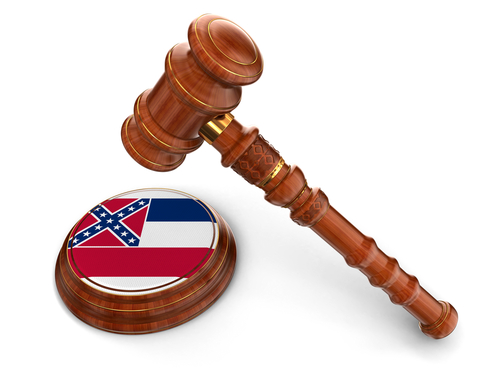Sessions to Kagan: Tell Us About Appealing ‘Don’t Ask, Don’t Tell’ Cases
The Republicans began their second round of questioning Elena Kagan, and the big question was whether there will be a repeat of Tuesday’s fireworks between the nominee and Sen. Jeff Sessions of Alabama.
Kagan maintained a stony, grim expression as Sessions, the ranking Republican on the Judiciary Committee, began questioning her on two federal court cases involving the military’s “don’t ask, don’t tell” policy in which she has played a role as U.S. solicitor general since last year.
Sessions noted that despite her personal opposition to the military policy, which is also enshrined in federal law, Kagan had pledged during her confirmation hearings for the solicitor general’s post to defend the existing federal policy.
“Were you fully committed to vigorously defending that law?” Sessions asked skeptically. He questioned whether she was aggressively defending the law in two cases. One was by the Boston-based 1st U.S. Circuit Court of Appeals, Pietrangelo v. Gates, which rejected a broad facial challenge to the “don’t ask, don’t tell” law. The other was a ruling by the San Francisco-based 9th U.S. Circuit Court of Appeals, Witt v. Department of the Air Force, which allowed a member of the military to bring a due process challenge to the policy and remanded her case to a federal district court for more fact-finding.
Kagan pointed out to Sessions that in the 1st Circuit case, one plaintiff appealed to the U.S. Supreme Court, and as solicitor general, she was counsel of record on a brief urging the justices not to take the case challenging the “don’t ask, don’t tell” policy.
As for the 9th Circuit case, Kagan said her office debated how best to handle it.
“We engaged in very serious discussions with the Department of Defense over the proper approach to defend the ‘don’t ask, don’t tell’ statues,” Kagan said. “I agree with you that the 9th Circuit decision undercuts the policy. It makes it harder for the government to carry out its policies.”
But Kagan and the government decided to allow the remand to the district court, where the government might win, and even if not, the final ruling could be appealed to the Supreme Court at a later time.
“We decided the better course was actually to wait on it,” Kagan said. “The case is not at all closed.”
With that, Sessions seemed to retreat a bit, saying he would review her positions in the cases.
Sessions pressed one more point in this round. Noting that Kagan has frequently referred to certain Supreme Court decisions under discussion as “settled law,” he asked whether that means she would feel constrained from overruling some of them if she is confirmed.
“I have no thoughts, no agenda, no purpose, remotely no plans to reverse any of them,” Kagan said firmly.
Sessions was less than reassured. He noted that Justice Sonia Sotomayor made similar promises about respecting precedents such as the court’s Heller v. District of Columbia decision on federal gun rights, yet was willing to join the dissent in Monday’s decision in McDonald v. City of Chicago, in which the majority extended the Second Amendment’s protections to the states.
Kagan said only that “it wouldn’t be appropriate to bind myself in any case.”
“I think that’s what I expected, and I think you will go to the court free to vote either way” on certain precedents, Sessions said.
Meanwhile, Sen. Patrick Leahy, D-Vt., the chairman of the committee, gave a brief update on the schedule, announcing that the Judiciary Committee had been asked, apparently by the Senate leadership, not to be in session while the late Sen. Robert C. Byrd was lying in repose in the Capitol, from 10 a.m. until 4 p.m. ET Thursday.
Leahy seemed to suggest that panels of additional witnesses would be heard sometime Thursday, but that now seems to mean either very early or late in the day, or both.
Kagan news from ABAJournal.com:
Today’s Metaphors: Kagan Advises Democrats About Being an Actor and an Umpire
GOP Expects to Press Kagan Further as Panel Weighs Schedule Over Byrd’s Funeral
Coburn to Kagan: ‘How Are You Going to Take Off Your Liberal Hat?’
GOP Takes Aim at Kagan’s Record, But She Has Breezy Conversation with Graham (Podcast)
Wait Until Law School to Write About Law, Kagan Tells Grassley
‘You’ll get Justice Kagan, You Won’t Get Justice Marshall’
Kagan Faces Early Squabbling Over Harvard Law School’s Policy of Handling Military Recruiters
Kagan Hearings Coverage Roundup: Day 1
Kagan Hearing Podcast: Busy Day at the Court and On the Hill
GOP Opens Its Offense Against Kagan’s Political Stances, Military Recruitment and Legal Heroes
Busy Morning at the High Court; Big Decisions, Farewells and Scrutiny of the Court’s Latest Nominee
Senators Begin Opening Statements at Kagan Confirmation Hearing
Write a letter to the editor, share a story tip or update, or report an error.


